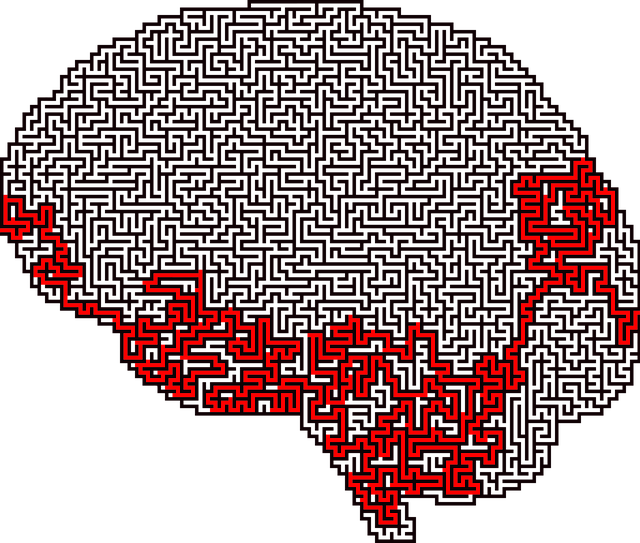Mental illness stigma, driven by misconceptions and societal pressures, significantly impedes support and treatment for conditions like Parker Adjustment Disorder (PAD). To combat this, education and awareness initiatives are vital. Integrating mental health education in schools normalizes conversations, while community workshops led by professionals dispel myths and promote self-care strategies tailored to PAD therapy. Programs like Parker Adjustment Disorder Therapy (PADT) play a pivotal role in providing accurate information and targeted interventions for adjustment disorders, challenging stigma through direct engagement and fostering a supportive society for mental health challenges.
Mental illness stigma remains a significant barrier to treatment and recovery. This article delves into the multifaceted issue, exploring its causes and profound impact on affected individuals. We examine the crucial role of education and awareness campaigns in fostering understanding and empathy. Additionally, we present effective strategies to challenge stereotypes and misconceptions surrounding mental health. A case study on Parker Adjustment Disorder Therapy illustrates successful stigma reduction practices, offering valuable insights for professionals and advocates.
- Understanding Mental Illness Stigma: Causes and Impact
- The Role of Education and Awareness in Reducing Stigma
- Effective Strategies for Challenging Stereotypes and Misconceptions
- Parker Adjustment Disorder Therapy: A Case Study in Stigma Reduction Practice
Understanding Mental Illness Stigma: Causes and Impact

Mental illness stigma is a pervasive issue that often hinders individuals from seeking necessary support and treatment. Understanding its causes is paramount in reducing the impact it has on affected individuals and communities. Stigma arises from misconceptions, fear of the unknown, and societal expectations, perpetuated through media portrayal and personal experiences. It manifests as discrimination, prejudice, and negative attitudes towards people with mental health conditions, leading to social isolation, reduced opportunities, and even self-stigmatization where individuals internalize these societal perceptions.
The consequences are far-reaching, affecting not only the mental well-being of those affected but also their ability to function in daily life. This can significantly impact their academic or professional pursuits, relationships, and overall quality of life. Recognizing that mental illness is a treatable medical condition akin to physical ailments, similar efforts towards destigmatization as seen in various health campaigns can be adopted. Implementing community outreach programs, developing public awareness campaigns, and integrating trauma support services into these initiatives can foster empathy, educate the public, and encourage early intervention and treatment-seeking behaviors for those experiencing mental health challenges, such as Parker Adjustment Disorder Therapy.
The Role of Education and Awareness in Reducing Stigma

Education and awareness play a pivotal role in breaking down the barriers of stigma surrounding mental illness. By integrating comprehensive mental health education into formal curricula, schools can empower young minds to understand and empathize with peers facing challenges like Parker Adjustment Disorder (PAD). This early exposure normalizes conversations about mental wellness, encouraging open dialogue and reducing the fear associated with seeking help.
Community workshops, led by professionals or advocates, further contribute to this effort. Such sessions can offer valuable insights into various mental health conditions, dispel myths, and promote self-care strategies. In the context of PAD therapy, for instance, these educational initiatives can facilitate a deeper understanding of emotional healing processes, crisis intervention guidance, and the potential for self-esteem improvement. Ultimately, informed individuals are better equipped to offer support and challenge societal norms that perpetuate stigma.
Effective Strategies for Challenging Stereotypes and Misconceptions

Stigma reduction efforts around mental illness must confront and dispel stereotypes head-on. Educative initiatives play a pivotal role in this regard, aiming to raise awareness and provide accurate information about various mental health conditions. For instance, Parker Adjustment Disorder Therapy (PADT) offers targeted interventions for individuals struggling with adjustments after significant life changes. By demystifying disorders like PADT, communities can move past simplistic, often harmful, narratives.
Community Outreach Program Implementation focusing on emotional well-being promotion techniques and stress reduction methods further aids in challenging misconceptions. These programs foster open dialogue, encourage empathy, and dispel the idea that mental illness is a personal failing or something to be ashamed of. Through interactive sessions and support networks, they empower individuals to seek help without fear of judgment, ultimately contributing to a more supportive societal environment for those navigating mental health challenges.
Parker Adjustment Disorder Therapy: A Case Study in Stigma Reduction Practice

In the realm of mental health stigma reduction, Parker Adjustment Disorder Therapy (PADT) stands out as a compelling case study. PADT focuses on empowering individuals diagnosed with adjustment disorders to navigate and overcome life’s challenges through tailored therapy sessions. By combining evidence-based practices such as Cognitive Behavioral Therapy (CBT), Mindfulness Techniques, and Conflict Resolution Techniques, this therapeutic approach addresses not just the symptoms but also the underlying causes of distress.
The program emphasizes self-care practices and emotional regulation strategies, equipping clients with tools to manage stress and improve overall well-being. Through group therapy sessions, participants share experiences and learn from one another, fostering a supportive community that reduces isolation often associated with mental illness. By successfully implementing PADT, healthcare professionals offer a comprehensive solution that not only alleviates symptoms but also educates and empowers individuals to actively participate in their journey towards mental health recovery.
Mental illness stigma, a pervasive barrier to treatment, can be effectively challenged through education, awareness campaigns, and evidence-based practices like Parker Adjustment Disorder Therapy. By addressing root causes and dispelling misconceptions, we can foster understanding and create supportive environments. The case study of Parker Adjustment Disorder Therapy demonstrates the power of tailored interventions in reducing stigma, encouraging acceptance, and ultimately improving mental health outcomes for all individuals.









